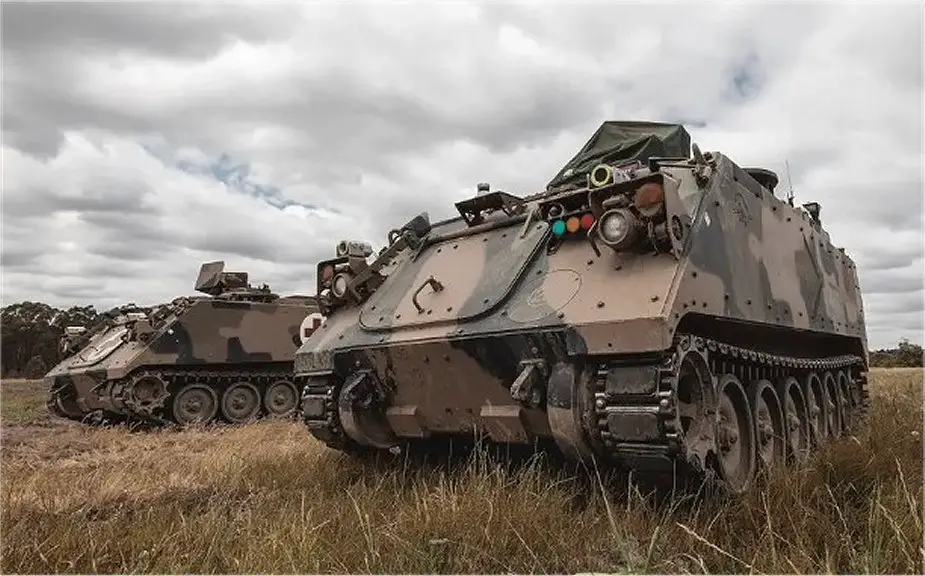Breaking news
BAE Systems Australia and Trusted Autonomous Systems to supply Australian Army with cutting-edge autonomous capabilities.
BAE Systems Australia and Trusted Autonomous Systems (TAS) have made significant progress towards providing the Australian Army with cutting-edge autonomous capabilities. Following a four-year research and demonstration initiative, the companies have developed an advanced Artificial Intelligence (AI) system tailored for uncrewed ground vehicles (UGVs).
Follow Army Recognition on Google News at this link

During the demonstration phase, TAGVIEW was deployed on several M113 Optionally Crewed Combat Vehicles (OCCVs) (Picture source: BAE Systems Australia/TAS)
Dubbed TAGVIEW (Trusted Autonomous Ground Vehicles in Electronic Warfare), this system enables multiple UGVs to effectively execute mission objectives while identifying and evading potential threats. Designed with modularity in mind and seamlessly integrated with BAE Systems’ autonomous Vehicle Management System, TAGVIEW boasts compatibility with various UGV models. Its features include optic cameras, LiDaR (Light Detection and Ranging), and internal navigation and route planning systems, enhancing user control and flexibility.
During the demonstration phase, TAGVIEW was deployed on several M113 Optionally Crewed Combat Vehicles (OCCVs), undergoing rigorous testing in planned relocation, logistical, and sweep search missions.
Andrew Gresham, BAE Systems Australia’s Defence Delivery Managing Director, remarked, “We are committed to advancing science and technology to equip Australia and our allies with a strategic advantage in future battlefield scenarios. TAGVIEW represents a remarkable collaboration, harnessing the expertise of Defence, industry, and academia to accelerate the development of transformative autonomous technologies.”
Dr. Simon Ng, Trusted Autonomous Systems’ Chief Technology Officer, emphasized TAS's pivotal role in project development, technical oversight, and collaboration with BAE Systems. He highlighted the project's success as a testament to the synergies between industry, researchers, and the Defence Science and Technology Group (DSTG).
Lieutenant Colonel Rachael Ayoub of the Australian Army’s Robotic and Autonomous Systems Implementation and Coordination Office (RICO) underscored the importance of autonomous capabilities in safeguarding soldiers while optimizing mission effectiveness. She noted the significance of maintaining human oversight while leveraging autonomous systems to mitigate risk.
The TAGVIEW program, funded by the Commonwealth of Australia and spearheaded by TAS, involved collaboration with esteemed academic institutions such as the University of Melbourne and the University of Adelaide’s Australian Institute of Machine Learning (AIML), as well as the DSTG.
Professor Chris Manzie, Head of the Department of Electrical and Electronic Engineering at the University of Melbourne, emphasized the collaborative nature of the project and its contribution to national security interests.
Professor Ian Reid of the University of Adelaide’s AIML highlighted the role of computer vision and machine learning in enabling autonomous vehicle operations, showcasing these technologies integrated on the M113 platform.
Associate Professor Rob Hunjet of the Defence Science and Technology Group praised the collaborative efforts across industry, academia, and Defence, citing TAGVIEW as a groundbreaking achievement in autonomy, particularly in perception and path-planning capabilities.
Defense News February 2024


























